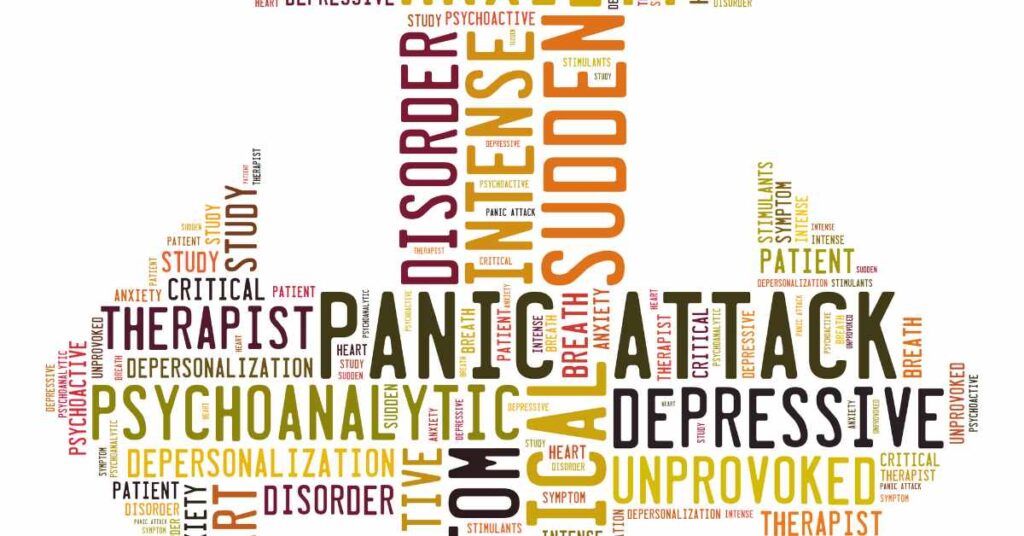
Anxiety: an American Epidemic
Anxiety is experiencing an upward trend and has emerged as a prevailing mental health concern in the United States. Approximately 40 million adults are estimated to be affected by an anxiety disorder, accounting for 18.1% of the population. Not only is it the most widespread mental health problem globally, but it is also progressively increasing within the United States.
There is an evidence-based treatment for anxiety!
One such approach to the treatment of anxiety is Acceptance Commitment Therapy (ACT). ACT has gained recognition for its effectiveness in treating anxiety. This article will explore the components of an ACT treatment plan for anxiety, highlighting the importance of individualized and holistic approaches to anxiety treatment, techniques, and the integration of other treatments and how we use them at Empower Counseling.
Anxiety disorders are prevalent mental health conditions that can significantly impact a person’s well-being and daily functioning. Acceptance and Commitment Therapy (ACT) is an evidence-based therapeutic approach that has shown promising results in treating anxiety.
ACT for Anxiety Treatment in Birmingham, AL
Acceptance and Commitment Therapy (ACT) is a form of psychotherapy that focuses on helping people develop psychological flexibility by accepting their thoughts and emotions while committing to actions that align with their values. Furthermore, it combines cognitive-behavioral techniques with mindfulness to cultivate acceptance, defusion, and committed action.
ACT was developed by Hayes, who devised the ACT methodology as a means to conquer his struggles with anxiety and panic disorder.

Setting Anxiety Treatment Goals
Collaborating with the client to establish meaningful and achievable goals is essential in ACT. By involving the individual in goal-setting, our therapists ensure that the treatment plan addresses the client’s preferences and needs. Prioritizing these goals based on their significance to the client helps create a sense of direction and motivation.
Importance of Developing an ACT Treatment Plan for Anxiety
We craft a structured treatment plan when addressing anxiety because it is essential. A treatment plan provides our therapists and clients with a roadmap, ensuring a clear understanding of the goals, strategies, and progress. It allows for a systematic approach that maximizes the effectiveness of therapy and facilitates collaborative decision-making between both parties involved in the healing process.
Components of an ACT Treatment Plan for Anxiety

Acceptance
Acknowledging your thoughts and emotions can present challenges since we often strive to evade unpleasant experiences. For instance, when confronted with anxiety about undertaking something unfamiliar, we might try to avoid the situation because of the discomfort that comes with it.
However, allowing and embracing these emotions in their raw form aids our personal growth by enabling us to take action in the face of discomfort rather than avoiding.
The first step in an ACT treatment plan for anxiety involves a comprehensive assessment of the individual’s anxiety symptoms and severity. This assessment helps our therapists understand the specific challenges the person faces. Identifying underlying factors contributing to anxiety, such as past traumas or maladaptive coping strategies, is crucial for developing an individualized treatment formulation.
Psychoeducation
Psychoeducation plays a crucial role in ACT treatment for anxiety. Our therapists provide information about the nature of anxiety, including its physiological and psychological effects. This helps the client better understand their anxiety and reduces the associated stigma.
Furthermore, our therapists explain the principles and concepts of ACT. They introduce the role of acceptance in managing anxiety, emphasizing that accepting anxious thoughts and feelings without judgment or attempts to control them can lead to greater psychological flexibility.
Our therapists also highlight the importance of mindfulness and present-moment awareness, cognitive fusion’s impact, and defusion techniques’ value.
Finally, values and committed action are introduced, emphasizing the significance of living a meaningful life despite anxiety.
By understanding the nature of anxiety, clients can better recognize and respond to their symptoms. Furthermore, introducing ACT principles and explaining their relevance to anxiety treatment empowers individuals to participate actively in their healing process.

Mindfulness and Acceptance Techniques
ACT incorporates various mindfulness and acceptance techniques to help individuals with anxiety. Our therapists teach mindfulness practices that cultivate non-judgmental awareness of thoughts, emotions, and bodily sensations. By being fully present in the moment, they can learn to observe their anxiety without judgment or attempts to change it.
In addition, our therapists encourage acceptance of anxiety as a normal human experience. They help clients develop a willingness to experience anxiety without trying to control or avoid it, fostering a healthier relationship with their anxious thoughts and emotions.
The Importance of Mindfulness and Present Moment Awareness in the ACT Treatment Plan for Anxiety
Mindfulness is a foundational component of ACT. Our therapists introduce mindfulness practices to cultivate non-judgmental awareness of thoughts, emotions, and bodily sensations. By staying present at the moment, clients can develop a greater sense of control over their anxious thoughts and emotions.
Cognitive Defusion Techniques
Cognitive defusion techniques aim to help anxiety patients recognize and distance themselves from anxious thoughts and beliefs. Our therapists provide exercises to challenge the accuracy and usefulness of anxious thinking patterns. By helping clients observe and question their thoughts, they can develop a more flexible and adaptive mindset.
Metaphors and language play a significant role in cognitive defusion techniques. Our therapists use metaphors to create psychological distance from anxious thoughts, allowing clients to see their thoughts separate from their identity or reality.
Challenging the believability and impact of anxious thoughts helps individuals gain a new perspective and reduce their influence on emotions and behaviors.

Clarifying Values
An important aspect of ACT is clarifying personal values. Our therapists explore our client’s core values and what is truly important to them. This exploration helps individuals understand how anxiety may interfere with living a meaningful life in alignment with their values.
By identifying specific actions that align with their values, clients can gain motivation and commitment to engage in behaviors that are significant to them, even in the presence of anxiety. This process involves setting goals that align with their values and actively working towards them.
Values clarification plays a significant role in ACT treatment for anxiety. Clients are guided to identify their values and what truly matters to them. This exploration helps establish a sense of purpose and direction in life. Commitment to action aligned with these values, even in anxiety, is emphasized. Addressing avoidance behaviors and promoting value-driven actions allows individuals to regain control over their lives.

Behavioral Activation
Engaging in activities that promote joy and fulfillment is an essential aspect of an ACT treatment plan for anxiety. Behavioral activation helps people counteract the avoidance patterns associated with anxiety by gradually and consistently participating in valued activities. Doing so builds resilience and creates positive experiences that counterbalance anxious thoughts and feelings.
Committed Action
Committed action refers to active engagement in behaviors that align with one’s values. In the context of an ACT treatment plan for anxiety, the therapist assists the client in setting realistic and achievable behavioral goals that promote their overall well-being.
It is essential to support clients in taking small, consistent steps toward their goals despite anxiety. Our therapists help clients develop coping strategies and build resilience to navigate anxiety-provoking situations effectively. Evaluating progress, making adjustments as needed, and celebrating successes reinforce the commitment to action.
Relapse Prevention and Maintenance
To ensure long-term success, relapse prevention strategies and ongoing maintenance are incorporated into the ACT treatment plan. Our clients learn self-care practices to support their well-being, such as regular exercise, healthy sleep habits, and stress management techniques.
Ongoing mindfulness exercises help maintain psychological flexibility and resilience.
An ongoing practice of mindfulness and acceptance techniques is strongly encouraged to maintain the benefits gained during therapy.
Also, promoting self-care, stress management, and healthy coping skills further supports individuals in managing anxiety effectively in their daily lives.
Therapeutic Techniques and Exercises
Mindful Breathing and Body Scan
When anxiety arises, our therapists teach our clients that practicing mindful breathing can assist in soothing their minds. We try this uncomplicated Anchor Breathing exercise so our clients can take a mindful break and reduce stress.
Thought Diffusion and Metaphorical Distancing
Our clients learn to observe their anxious thoughts without getting entangled. Metaphorical distancing exercises, such as imagining thoughts as passing clouds or leaves floating down a stream, help create distance from anxious thoughts and reduce their influence.
Value-Based Action Planning and Commitment Exercises
In Acceptance and Commitment Therapy (ACT), there is a technique known as “front-loading the values,” which means that the initial session with a client should focus on clarifying their deepest values.
Clients often confuse goals with values, such as wanting to be happy. While happiness is indeed a goal, it is important to delve deeper into the values that underlie it. A helpful approach our therapist uses is to inquire, “What would you do when you are happy?” This question allows for an exploration of the underlying values.
Similarly, a common goal like “I want to be rich” can be examined by asking, “What would you do when you are rich that you cannot do now, and why?” clients can gain clarity regarding their values through this exploration process.
Our clients identify actions aligned with their values and create specific plans to carry them out. We use commitment exercises that involve making commitments to take meaningful actions despite anxiety, reinforcing the importance of values-driven behavior.

The Observing Self
Our clients are taught to differentiate between the thinking mind and the observing self. The observing self is the part of us that can step back and observe our thoughts and feelings without getting caught up in them. Our therapists encourage clients to practice “self-as-context” exercises to cultivate this perspective.
Defining the Anxiety Story
When anxiety arises, your thoughts tend to magnify it frequently by introducing a familiar self-critical narrative. When these self-defeating or self-limiting thoughts emerge, recognize them as products of your mind and express gratitude for their input. You can either say it aloud or silently to yourself.
Whenever repetitive self-defeating narrative surfaces (such as “I’m inadequate”), label it as the “I’m inadequate” story, acknowledge its presence, and then release it.
Each time your old self-defeating narrative tries to take control of your thoughts, appreciate your mind for replaying the “I’m inadequate” story, allowing it to play in the background while you focus on the tasks that will bring you closer to your objective.
Our therapist helps clients examine the narrative they have constructed around their anxiety. Explore their stories about their anxiety and how it affects their lives. Furthermore, they challenge unhelpful narratives and assist in reframing anxiety as a normal human experience rather than a flaw or weakness.
Role-Playing and Experiential Exercises
We use role-playing exercises to allow our clients to practice confronting anxiety-provoking situations in a supportive therapeutic environment. By gradually exposing themselves to feared situations, individuals build resilience and learn that anxiety does not have to dictate their actions.
Acceptance-based role plays help address fear and avoidance by providing alternative responses to anxiety-provoking situations.
Integration with Other Treatments
ACT can be integrated with other evidence-based therapies to enhance treatment outcomes. For example, cognitive Behavioral Therapy (CBT) can complement ACT by addressing cognitive distortions and maladaptive thought patterns associated with anxiety. Thus, collaborating with medication management, when necessary, ensures a comprehensive approach to anxiety treatment.
Collaboration and Evaluation
Collaboration between our therapists and clients remains essential throughout the treatment process. Our therapists maintain a supportive and collaborative relationship, involving clients in decision-making and treatment planning. Therefore, regular assessments and evaluations are conducted to gauge the effectiveness of the treatment plan and make adjustments based on the client’s progress and feedback.

How Can ACT Anxiety Treatment in Birmingham, AL Help Me?
ACT provides a promising framework for addressing anxiety by focusing on acceptance, mindfulness, values, and committed action. Therefore, with our skilled therapists, you can develop a treatment plan that suits your needs, ultimately leading to improved well-being and a more fulfilling life.
Here at our Birmingham counseling center, our trained therapists treat the person, not the anxiety, using acceptance commitment therapy techniques to help our clients increase their functions and well-being, which will, in turn, reduce and subsequently tune out the symptoms.
At Empower Counseling, our team of therapists, Marti, Savannah, Lucia, and Kathryn are dedicated to empowering you. We will provide guidance and support as you navigate your journey toward a purposeful, joyful, and connected life, focusing on actions that align with your values.
Getting started with your own ACT Treatment Plan for anxiety with Empower Counseling is simple:
- Click to send our therapists a message, and scroll to the bottom of the page.
- We will get back with you ASAP.
- Meet your new anxiety therapist.
ACT for anxiety counseling is only one of the many services we offer at our Birmingham area counseling clinic. Empower Counseling also offers therapy for trauma, counseling for depression, and therapy for difficult life transitions. And we specialize in helping perfectionists thrive! We only use proven effective methods to help teens, college students, young adults and professionals through in person and online counseling in the state of Alabama.
Start with Empower Counseling today!
Learn more about how our Birmingham therapists can help you.
